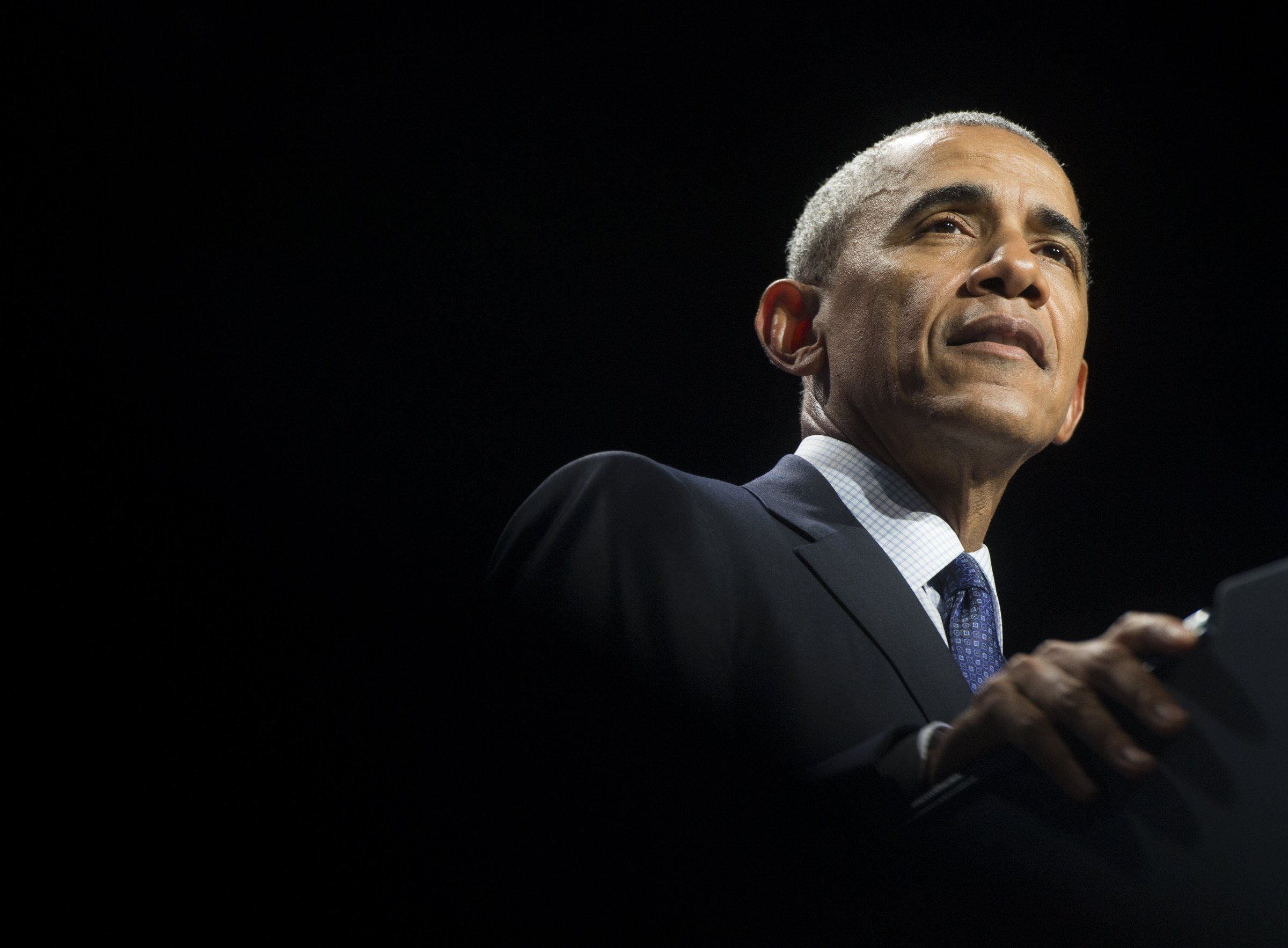
In a signature foreign policy speech in Cairo in 2009, President Obama declared a “new beginning” with the Muslim world. Among his key promises was a Global Entrepreneurship Summit, designed to help replace the terror-and-oil-filled narrative of America’s interaction with the Middle East with one of promise and cooperation. Youth unemployment rates of more than 40% in the Middle East and the Arab Spring the following year gave the initiative urgency. Wouldn’t supporting job-creating entrepreneurs be a powerful way to bring economic hope to vast numbers of jobless, impressionable youth, who are the prime recruiting demographic of terrorists groups like al-Shabaab and ISIS?
This week, Obama will host the seventh Global Entrepreneurship Summit at Stanford University, just as his administration begins to form its response to the latest ISIS-inspired terrorist attack. But if the Obama administration’s track record is any indication, this celebration of entrepreneurship will be another case of empty words. The administration has failed to provide proper funding and process to promote global entrepreneurship, resulting in policy implementation similar to turning a screw with a rubber screwdriver.
In 2010, the first Global Entrepreneurship Summit seemed like the beginning of a true strategy. The meeting launched several entrepreneurship programs, including one that I ran, the Global Entrepreneurship Program, housed at the State Department. There was much fanfare about new Overseas Private Investment Corporation funds for Middle East tech, and talk of $100 million in programming to help Muslim entrepreneurs build companies, innovate products and hire those legions of unemployed young men and women.
Alas, the buzz led to little. The Global Entrepreneurship Program sought to mingle American investors with Muslim entrepreneurs, provide business skills training and turbocharge startup ecosystems in places like Turkey and North Africa. But it never received a dime of State Department funding. The OPIC funds haven’t come close to capitalization targets, and few deals have been finalized. An inspiring policy became a series of summits and great photo ops.
According to a study by the Aspen Institute, just 1% of the U.S. government’s roughly $35 billion in annual foreign aid spending goes toward entrepreneurship promotion. Even the White House factsheet on “U.S. investment in entrepreneurship” released at last year’s Global Entrepreneurship Summit belies shortcomings, revealing no total spending figure, vaguely claiming credit for private-sector initiatives, and boldfacing dollar amounts that were not provided by the U.S.
That entrepreneurship gets so much show and so little play in our foreign policy is a huge missed opportunity. A comprehensive, long-term commitment to entrepreneurship programming would secure America far more effectively than drones, military advisors and the diplomatic games we currently pursue. Entrepreneurship creates jobs, and jobs—by giving frustrated youth something to live for—are the foundation of stable, civil societies. It provides a quick “way up” for women, minorities and others traditionally excluded from economic opportunity. It encourages the formalization of economies—when business owners can only borrow against legal assets, they agitate for clear regulations. And, critical from a foreign policy standpoint, entrepreneurship is America’s calling card. Even people in the countries that like us least, respect—and strive to join—America’s entrepreneurial culture.
What we need from this week’s summit in Silicon Valley—and from the next administration—is a commitment both to prioritize entrepreneurship in our aid and to disburse those funds more, well, entrepreneurially. Entrepreneurship promotion is not expensive, and it does not mean picking winners. It’s about growing ecosystems. Silicon Valley birthed Google, Facebook and Instagram because it is chockablock with shared workspaces, angel investors, elite research institutions, accelerator programs and news media that closely follow the startup scene. Silicon Valley can never be replicated, but it is certainly possible to rebalance American aid in the Middle East/North Africa region toward business plan competitions, early-stage seed funds, incubators, mentorship programs, prototype testing facilities and maybe even a Shark Tank roadshow to North Africa.
We must also pay attention to who implements and runs the programs. In a typical year, nearly a third of the money USAID awards to contractors goes to just three firms, and 75% goes to just 20, even though USAID does everything from micro-irrigation to micro-finance. Indeed, the successor program to the Global Entrepreneurship Program in Egypt is implemented by AECOM, a giant contractor known for multi-hundred-million dollar infrastructure projects, not for advising a two-man software startup. We must rewrite government contracting policies to ensure projects are implemented by real subject matter experts.
This is Obama’s last Global Entrepreneurship Summit. At a moment when we must use all elements of our national power to support the Middle East, let’s hope that he launches an entrepreneurship legacy worthy of the challenges we face.
More Must-Reads from TIME
- Why Trump’s Message Worked on Latino Men
- What Trump’s Win Could Mean for Housing
- The 100 Must-Read Books of 2024
- Sleep Doctors Share the 1 Tip That’s Changed Their Lives
- Column: Let’s Bring Back Romance
- What It’s Like to Have Long COVID As a Kid
- FX’s Say Nothing Is the Must-Watch Political Thriller of 2024
- Merle Bombardieri Is Helping People Make the Baby Decision
Contact us at letters@time.com